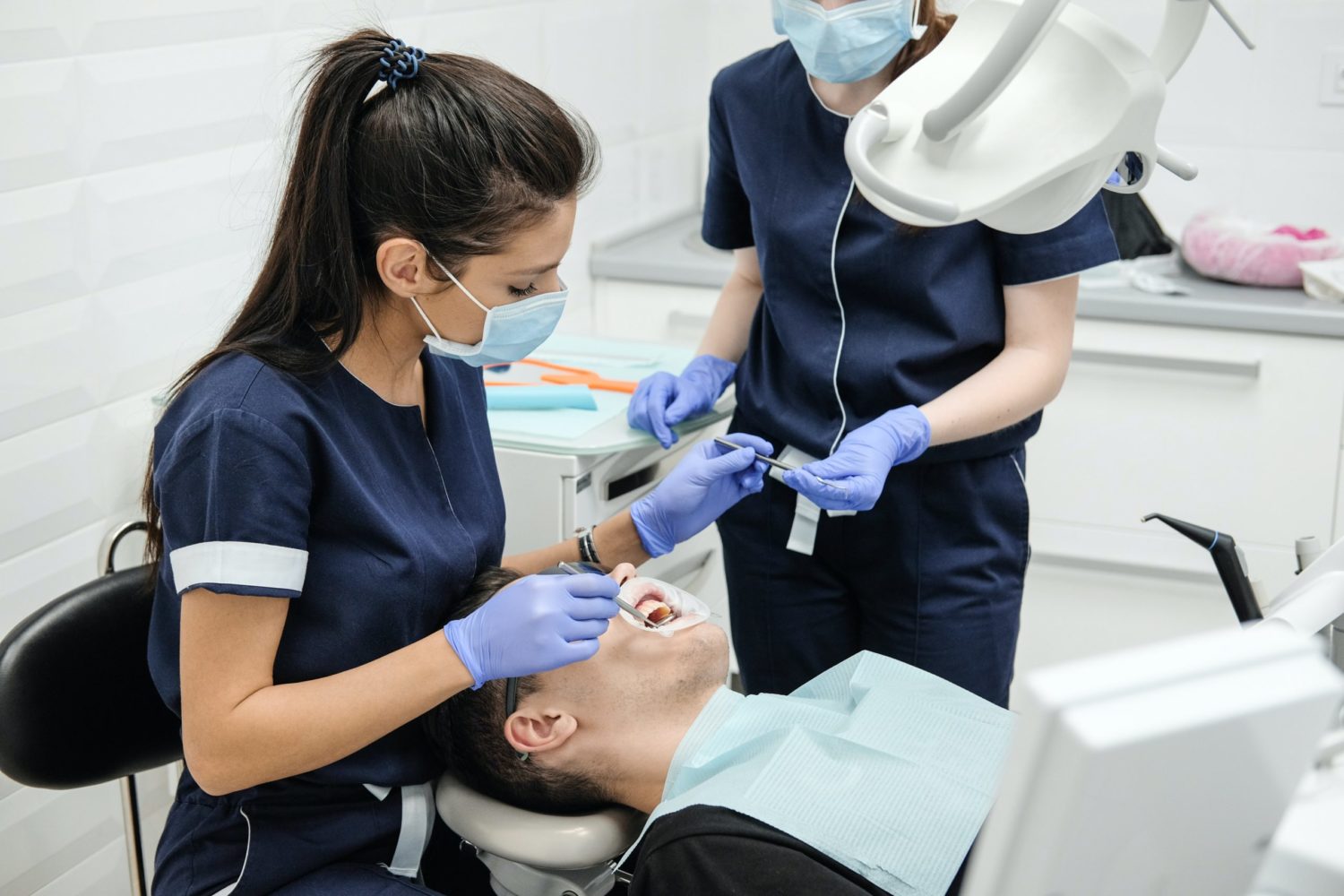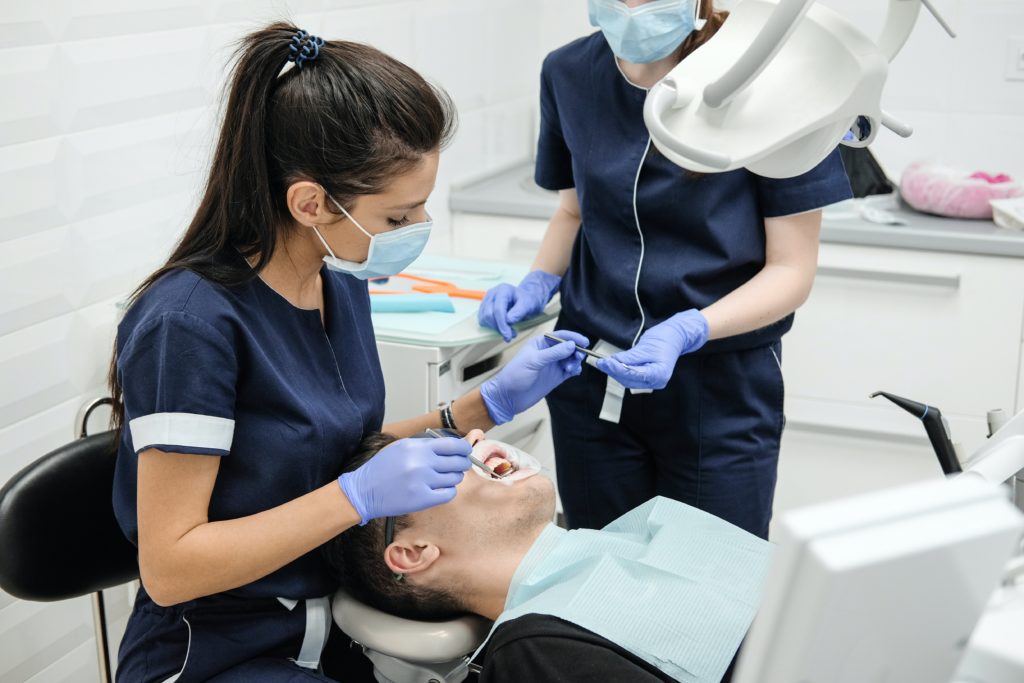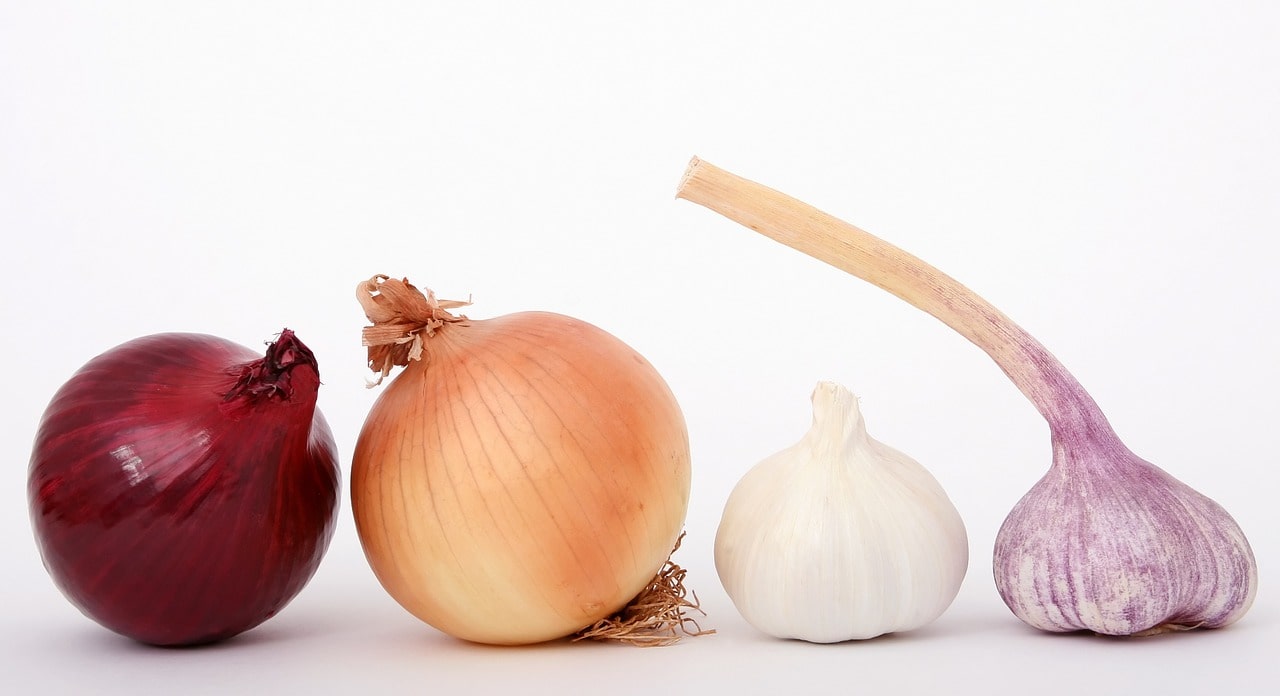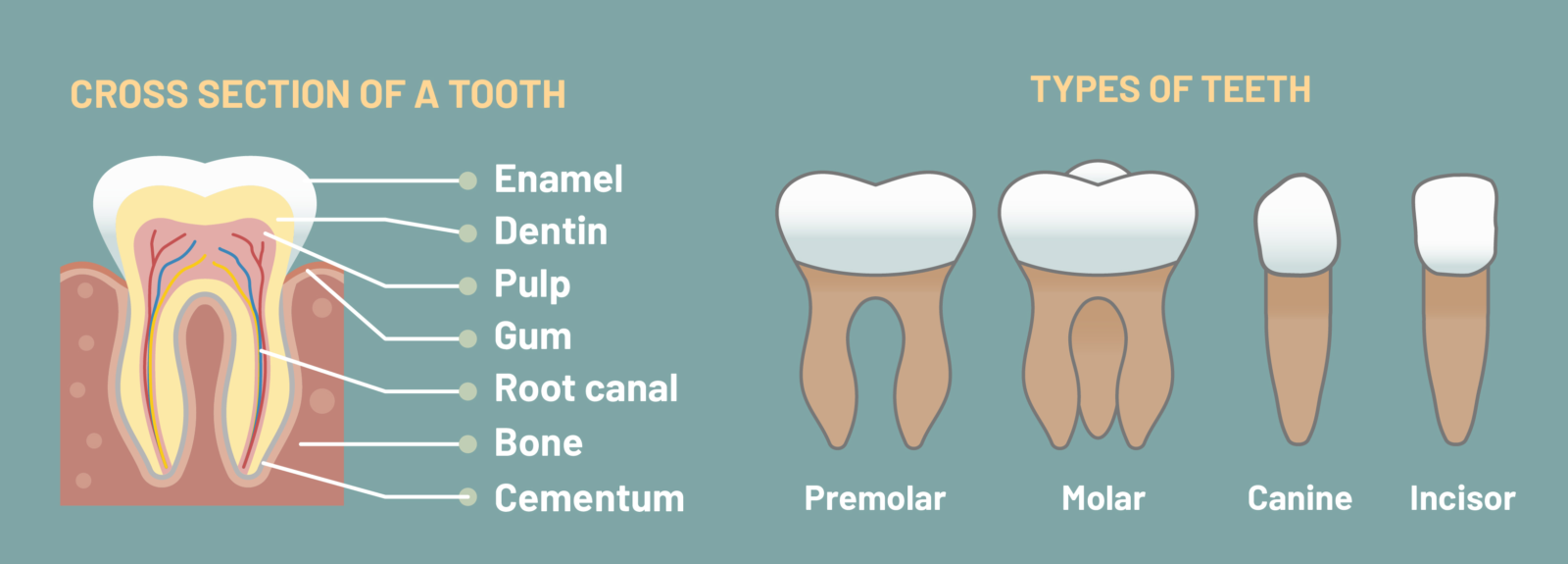How to Tell if You Have Receding Gums and What to Do
Have you recently looked in the mirror and noticed your teeth appear longer than before? You could have receding gums.
So, what are receding gums? When gums start to pull away from teeth, it exposes the tooth root, so teeth appear longer than before. Gum recession can occur because of infection and inflammation or can be due to oral habits harming the delicate gum tissue.
Whatever the reason, receding gums increase the risk of teeth becoming infected and decayed, or may even result in tooth loss.
What are the Symptoms of Receding Gums?
When gums, or gingivae (a tissue that lives over your teeth), are strong and healthy, they are pink coloured and fit snugly around your teeth. Your gums have a good blood supply, so when they are infected or inflamed, they will often begin to bleed easily when you brush or floss your teeth, and if the infection worsens, they can bleed at other times. As a result, you may have sore gums or swollen gums, and they could look red.
Other signs that your gums are receding can be relatively subtle. For example, you may experience increased tooth sensitivity as gum recession exposes tooth roots that aren’t covered in protective tooth enamel. Therefore, the sensations created when you eat anything hot, cold, sweet or sour are more easily transmitted to the tooth nerve. When gum recession is advanced, you may have more noticeable symptoms such as; bad breath, and your teeth may even begin to feel loose.
What Causes Receding Gums?
Gums can recede due to a variety of reasons listed below. Here are some of the most common reasons and things to avoid:
Periodontal Disease
Periodontal disease is the main cause of receding gums and is a bacterial infection. Your mouth is host to hundreds of different strains of bacteria, and some can be harmful. Each day, bacterial levels increase and build up over tooth surfaces in a sticky film called a plaque biofilm. The bacteria in dental plaque can infect and inflame gums, particularly when plaque isn’t removed regularly through brushing and flossing.
There are two distinct stages to periodontal disease, gingivitis and periodontitis.
The first stage, gingivitis, you may notice your gums have started to bleed slightly and look red and swollen. The good news is that prompt gingivitis treatment can reverse this condition.
It’s a different story with the second stage of periodontal disease, a condition called periodontitis, where there is now significant gum recession, and gums bleed more readily. In addition, you may notice other signs such as teeth that are loose, as well as other signs such as bad breath, a persistently unpleasant taste in your mouth, and changes to your bite as teeth loosen. Unlike gingivitis, periodontitis is much more difficult to cure completely and can become chronic.
Poor Oral Hygiene
Failing to clean your teeth regularly by brushing and flossing allows plaque to build up. Plaque contains bacteria that produces harmful toxins, causing infection and inflammation in your gum tissue. After just a couple of days, plaque hardens into calculus or tartar and can only be removed during a professional dental cleaning. The bacteria in plaque and tartar produce toxins, causing gum disease.
Brushing Your Teeth Too Forcefully
While thoroughly brushing your teeth is important for good dental health, the gingival tissue is quite delicate, and if you brush your teeth too hard or use a hard-bristled toothbrush, you can wear it away. When this is the case, gum recession is often worse on one side of the mouth, depending on whether you are left or right-handed.
Teeth Grinding and Clenching
Do you wake up with a headache, aching teeth or aching jaw joints? You may be grinding and clenching your teeth in your sleep. This is a condition called bruxism and is usually nocturnal. The pressure created by clenching and grinding your teeth can cause gum recession and significant damage to your teeth, sometimes wearing them down to little more than stubs.
Dental Injury and Oral Piercings
Sometimes gingiva can be damaged if you have an accident or when playing sports. Damage to these tissues can also occur if you have an ill-fitting dental appliance like a partial denture that rubs consistently on your gums. Oral piercings can significantly damage oral health, rubbing on the gums, causing the gingiva to recede.
Smoking
Smoking considerably increases the risk of periodontal disease. If you smoke, you may not notice early symptoms. Smoking constricts the capillaries in gums, restricting the flow of blood so gums may bleed less easily. Because the capillaries are constricted, the body is less able to remove harmful toxins from your gums and to transport nutrients to aid healing.
Genetics
Some people have gum tissue that is naturally thinner and more easily eroded. Other times, people may have immune disorders that increase their susceptibility to developing gum infections.
Can Receding Gums Grow Back?
There is no receding gums cure, and once gum recession has occurred, this tissue cannot grow back, which is why we’d far rather prevent receding gums in the first place. When gum recession is significant, you may need to see an oral health specialist for advanced treatment such as gum grafting.
How to Treat Receding Gums?
Your receding gums treatment depends on the cause and degree of damage to your gums. For example, if you have bruxism, we can provide a custom-made nightguard that prevents clenching and grinding during sleep. If you are brushing your teeth too hard, we can show you how to clean them more gently yet effectively without harming your gums.
Gingivitis Treatment
Mild cases of gum inflammation like gingivitis are normally treated quite simply. We can clean your teeth professionally, eliminating the bacteria found in plaque and tartar, giving your gums a chance to heal. When combined with an improved oral care routine, this simple gum inflammation treatment will soon restore good gum health.
Periodontal Treatment
Treatment for more advanced gum disease is a little different, and we may need to deep clean your gums with a process called scaling and root planing. This is done in a four step process:
- Similar to an ordinary dental cleaning, scaling and root planing also remove plaque and tartar from exposed tooth roots below the gumline.
- Afterwards, we smooth or plane the tooth roots, making it easier for gum tissue to reattach to the tooth.
- Next, we recommend another receding gum treatment where a desensitising agent is applied that helps reduce the sensitivity of exposed tooth roots.
- Sometimes, it may be necessary to place a tooth-coloured composite resin filling over the tooth root’s surface.
When infection is substantial, you may need gum surgery, where we create a flap in the gum tissue to gain better access to the infection and remove tissue too badly damaged to heal. Afterwards, the gum is stitched closed, and as it heals, it should begin to fit more snugly around your teeth. When a substantial amount of gum tissue is destroyed, you may need gum graft surgery. During this procedure, oral tissue is taken from another area in your mouth and stitched over the gum.
How to Prevent Receding Gums
Because the signs are so subtle, gum recession is often easily missed. Attending regular checkups here at Tandara Dental Centre can help prevent gum infection. Our caring dental team can quickly detect any signs of infection and inflammation in your gums, providing treatment at a stage that is less invasive and much quicker, reversing the signs of gingivitis entirely.
If needed, we can also work with you to improve your oral care routine at home, making sure you use the right toothbrush and toothpaste. With the proper preventive dental care, we can make sure you maintain healthy teeth and gums.











